Finisterre On Making Ocean Safe Plastic
All Images: Finisterre
Whilst there are many threats to the health of our ocean, plastic is a huge one that we can actively work to alleviate. On World Ocean Day we spoke to Finisterre about their incredible work to innovate and educate within the fashion industry and save the seas.
Every year 8 million metric tons of plastic lands up in the sea. We’re all familiar with the images of the devastating damage that plastic does to wildlife in the ocean and thanks to a certain Mr Attenborough, we are becoming more and more aware of the effect of micro plastics in the sea and on humans. It’s one of the many issues that is addressed by World Ocean Day. Created in order to help us celebrate and honour the ocean, it draws our attention to the work that still needs to be done. Finisterre is a swim, surf and outdoor clothing company founded in 2003 by Tom Kay. With their headquarters by the sea in St Agnes, Cornwall, they are only too painfully aware of the impact of plastic on our oceans.
Since the brands inception they have made eco friendly and transparent practices a non negotiable part of doing business. They were rewarded for this in 2018 with a B Corp certification and are proud to be the first UK Outdoor clothing brand to be awarded the accolade. As fashion is one of the biggest environmentally polluting industries in the world Finisterre see it as their mission to do as much as they can to save the ocean. Making products that are hardy and will last the test of time is an important aspect of what they do. Not only that but they use regenerated fabrics and ECONYL fibres as much as possible to ensure they are minimising their impact. However, like many fashion companies their struggle with single use plastic is real! We were lucky enough to sit down (over Zoom) with Naimh O’Laoighre, Product Development Manager at Finisterre to find out more about their work.
World Ocean Day was created to help us celebrate and honor the ocean, what does Finisterre do to celebrate and honour the ocean?
Because of our proximity to the sea, the brand was born from a love of the ocean. Everything we do has a purpose and we consider the environment always. Fashion is one of the worst polluters in the world, however we want to be a viable business and make amazing product too. Our business is to do it in the most responsible way possible. It starts with sourcing organic and recycled fabrics for the collections but there’s much more to it than that. Since we became a B Corp in 2018 we’ve made it our mission to eradicate single use plastic from our supply chain.
We also work to enable others access to the sea. Working with charities such as Wave For Change which supports children with learning disabilities. Children who have never been to the beach before get to come along and have a wonderful, connecting experience. As for the company, we have an amazing day called Sea Tuesdays each week. It’s an opportunity for staff to start at 10am instead of 9am. They are encouraged to use that extra hour to be near the sea. Whether that’s surfing, swimming, yoga on the beach, walking your dogs on the cliffs etc. Then we meet up after in the shop in St Agnes and have a catch up about the experience. It reminds us to check in with the Ocean and environment regularly. We also have a campaign called the Sea To Me where we encourage our customers to love and protect the ocean. If the ocean isn’t working properly it’s not creating our air. When people don’t live by the sea they don’t have that daily reminder so we are here to help.
How do fashion brands use single use plastic?
It’s mostly for transport. So for example we have our shirts shipped with little plastic pegs to keep the shape. The collar support would be plastic too as are the garment bags and ties for the swing tags. When we first looked at what we could change, we immediately got rid of this shirting plastic. As well as the plastic clamps used with the shirts. Instead we switched to cardboard supports for the collars and got rid of the pegs. The plastic tie for the swing tag was more complicated as it can’t be reattached once removed. Instead we now use waxed cotton to attach the tags. The biggest issue however was the plastic mailer bags that our items get delivered in and of course the garment bags. The garment bags are used to ship the product from the factory to headquarters and to our shops. The mailer’s were changed to an FSC (Forest Stewardship Council) paper bag. The garment bags were trickier as they are really important to make sure that the garment reaches the customer in the best condition. If we are asking customers to buy less and buy better, we can’t deliver product in a way that risks its integrity.
Is There A Solution?
At first we looked at bio bags made of cornstarch and rice starch. They are compostable, but not necessarily in home composts. The perfect conditions for it to break down can only really be found in industrial composting and unfortunately we don’t have the infrastructure yet in the UK to support this. So we wanted to find a more viable solution. Plastic in its lifecycle works, it does a job well but it’s the end of life that is the problem. We haven’t found a good way to dispose of them so they stay in landfill for years and years. The new garment bags are, we believe, a solution to the plastic crisis. Collaborating with Aquapak on the Leave No Trace initiative has been great because it ticked all the boxes. The company had been working on a water soluble polymer called PVOH. Most plastics are hydrophobics which means they don’t like water. A hydrophilic polymer loves water and will degrade completely. It’s a hot water soluble polymer at temperatures above 70 degree centigrade. This means it won’t degrade in the rain. To dispose of the bag simply put it in the sink and pour boiling water over it. It’s safe to pour down the drain as it breaks down into water and carbon dioxide. It’s completely non toxic.
The bag has been a real game changer because we are so focused on the ocean and highly sensitive to microplastics. We can’t control what other people do with the bags but we can be confident that if it does leach out into the natural environment it is totally harmless. All the benefits of plastic without the harm to the environment.
Speaking of micro plastics, what are Finisterre doing to address this?
This is a tricky one for us because we are trying to create longer lasting clothes that are high performance. To do this we use recycled polyester instead of virgin. Which is a start but we know it’s not the most eco friendly option. So we sell Guppyfriend Bags and educate our customers to wash their clothes less to try to minimise the amount of microplastic shedding that takes place during washing. Creating better quality garments from the beginning means that people don’t buy as much and we encourage them not to throw things away. We’re encouraging people to keep the circular economy going. Our Lived and Loved repairs workshop in St Agnes means we can keep our customers clothes going for longer. The main goal is to encourage people to mend and evolve their product. And ultimately not to throw it away to landfill.
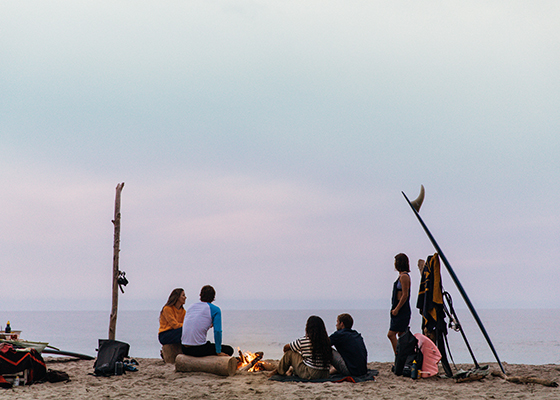
The end goal is for all of our plastic components to be recycled so we aren’t creating demand for virgin plastic. However recycled plastic isn’t as strong as virgin and so it won’t last as long.. What is encouraging is how much the industry has changed. Recycled fibres are much easier to come by than previously so this gives me hope.
Why is it important to keep innovating away from plastic?
I’m not sure we’re getting away from plastics as it has a place and does a job. For us it’s more about innovating the plastic itself and introducing it into people’s life. We are the first clothing company in the world to introduce these bags. Even though we wouldn’t be classed as a large business, we still use around 100,000 garment bags a year. And as a business, we have to make sure that there is a barrier between your clothes and any dust, water or dirt that could ruin them.
The next big project I am working on is to develop a new mailer bag with Aquapak. These are the bags that we deliver to customers. They will be made of paper but will have a PVOH film on the back. The protection provided by the film backing means that we can reduce the amount of paper needed for the mailer bag. It will still be recyclable as the paper goes through hot water pulping. The plastic will degrade in the heat, separating itself from the paper. Plus it’s infrared traceable so it can be collected and used again. Everything from the polymer side is ready but the recycling infrastructure isn’t there. In the future we hope there will be places this can be done to utilise the polymer film but they need to catch up with demand. When this happens these polymers can be recycled again.
At the moment the main mission is to try and get other brands on board with using the polymer. This product didn’t exist before our project so I have had to create an entirely new supply chain to get it to production but manufactureres haven’t come across this polymer before. I spent a lot of time finding companies who would even trial it. It’s also currently 4x more expensive to manufacture compared to a normal plastic bag. So this is a big commitment for us to do this but we know it’s for the better. Once we nail the supply chain we can encourage other clothing businesses to be part of it.**
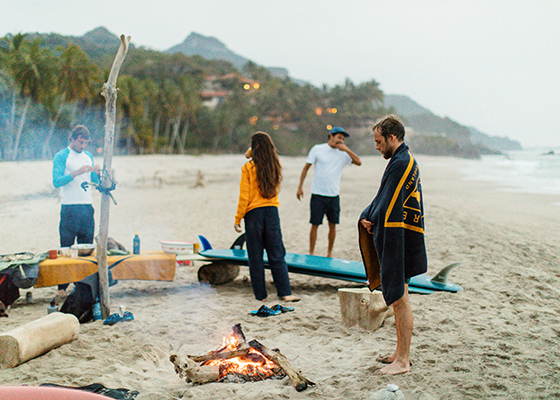
Can you tell us more about your B Corp certification?
We were the first UK outdoor clothing company to get B Corp status in January 2018. It was amazing to get it because it’s a confirmation of our journey. Sustainability isn’t something that we jumped onto like everyone else. Being for the planet has always been in our DNA. The certification has given us new targets to work towards by highlighting the areas in which we need to do better. This includes how staff at the company are treated. For example we have Sea Tuesdays which I mentioned previously.
We understand that things that are for the wellness of the business includes the wellness of the staff. The sense of community it creates is so important. This community is built within the business and it radiates beyond. We want to educate, inform and inspire people and bring important environmental topics to life. For us it goes beyond making money and clothes and turning a profit.
**If you are a brand and are interested in using the bags then we will gladly put you in touch with Niamh.
Did This Put A Smile On Your Face? Why Not Subscribe?
If you enjoyed this then theres plenty more on our email newsletters that you'll love. Whether you're a sustainable newbie or an eco conscious pro, our bi monthly emails will inspire you to live sustainably and ethically.
Disclaimer: The people and models in the images featured are not associated with The Vendeur and do not endorse it or the products shown. This post may contain affiliate links. Prices correct at time of publishing.

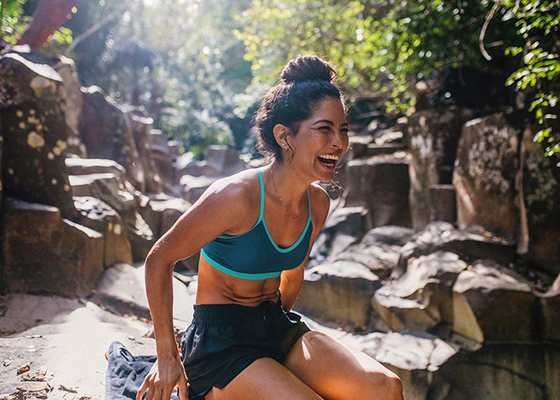
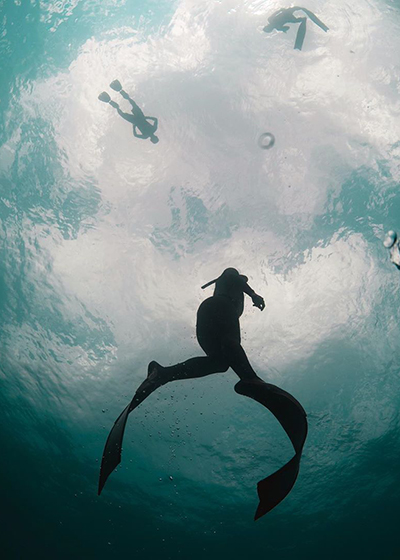
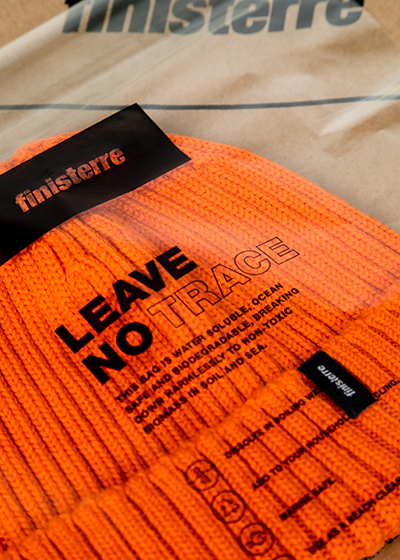

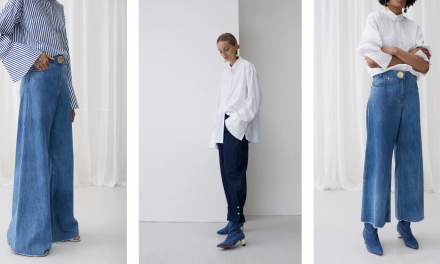
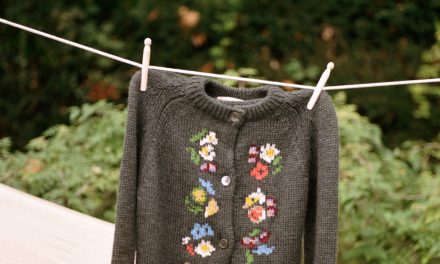
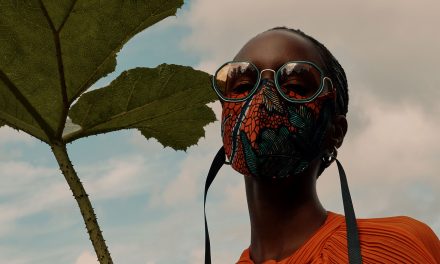
Trackbacks/Pingbacks